On September 10, 2019, SQLskills will have three slots in the free 24 Hours of PASS: Summit Preview 2019 event. I’ll be leading off with “Dr. DMV’s Troubleshooting Toolkit” at 12:00 UTC. Erin Stellato will present “Why You Need Query Store” at 16:00 UTC, and Jonathan Kehayias will present “Bigger Hardware or Better Code and Design?” at 19:00 UTC. You can use this link to register for any or all of the sessions in the entire event.
Here are the abstracts for the three sessions:
Dr. DMV’s Troubleshooting Toolkit
Dynamic Management views and functions allow you to easily see exactly what is happening inside your SQL Server instances and databases with a high level of detail. You can discover your top wait types, most CPU intensive stored procedures, find missing indexes, and identify unused indexes, to name just a few examples. This session presents, demonstrates, and explains a complete set of diagnostic DMV queries that you can easily use to detect and diagnose configuration and performance issues in your SQL Server instances and databases. This session goes into exhaustive detail on how to interpret the results of each of the diagnostic queries, including relevant background information on how to properly configure your hardware, storage subsystem, operating system, SQL Server instance, and databases in order to avoid performance and scalability issues.
Why You Need Query Store
Have you upgraded to SQL Server 2016 or higher, but still have databases using the old Cardinality Estimator? Do you know that you have queries with inconsistent performance, but you’re just not sure how to find them, or fix them, quickly? Are you tired of flailing around in SQL Server, querying DMV after DMV to figure out the *real* problem with performance? Query Store can help. We’ll cover Query Store end-to-end in this full day workshop built using real-world examples based on customer issues resolved over the last 2+ years. You’ll understand how to configure it, what data it captures, and how to use it to analyze performance, find regressions, and force plans. The demos will teach you how to find common patterns in query performance using T-SQL, and how to understand your workload. This class is applicable for those running SQL Server 2016 or higher (or planning to upgrade), or Azure SQL Database, and will provide practical and applicable information you can use whether you’re a new or veteran DBA, a developer that has to troubleshoot query performance, or an application administrator just trying to keep the system afloat. You’ll learn how to find and leverage important information in Query Store to make solving common performance problems easier the moment you walk back into the office.
Bigger Hardware or Better Code and Design?
Whether you are running SQL Server in the cloud or on-premise, more hardware often becomes the first answer to performance problems. The cost of scaling up in effort is relatively low, especially in the cloud where changing resource sizes is only a drop down option away, but financially this can quickly become a deal breaker. Even the fastest hardware won’t keep up with bad design and coding patterns. This session will take a look at many of the new features of SQL Server and how they can best be leveraged for performance tuning your workload. From In-Memory OLTP to Columnstore Indexes, Query Store, and Extended Events, this session will guide you in finding the source of the problems, and solutions available to make your workload faster and consistently reliable. We’ll even take a look at different alternatives using older features of SQL Server that you may be leaving on the shelf that are a better fit to solving certain kinds of problems.
Erin Stellato recently wrote about the SQLskills presence at PASS Summit 2019, where both Erin and Jon have full day pre-conference workshops, and I have a half-day session during the conference. I hope to see you both at 24 Hours of PASS and at the PASS Summit 2019!
